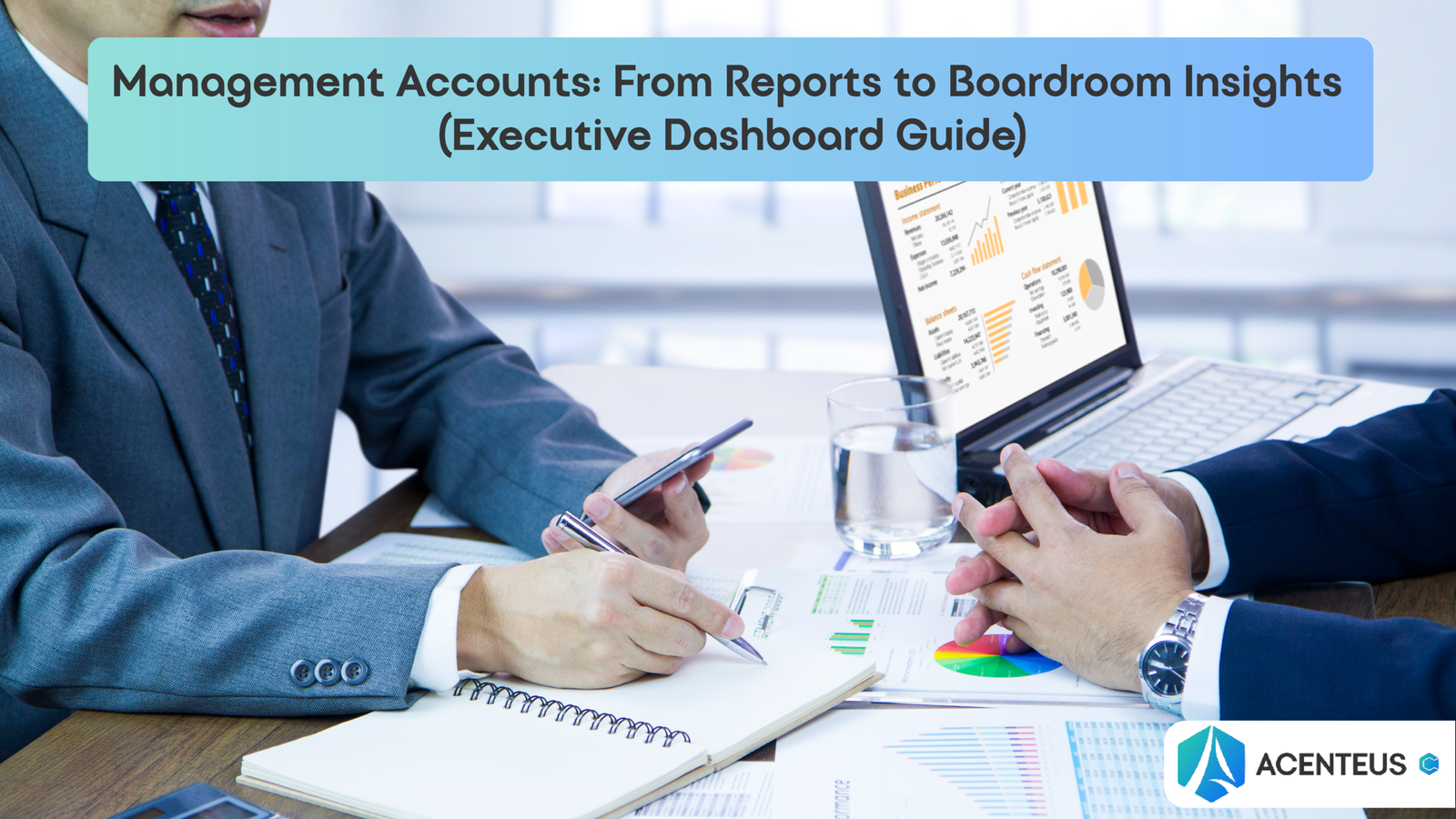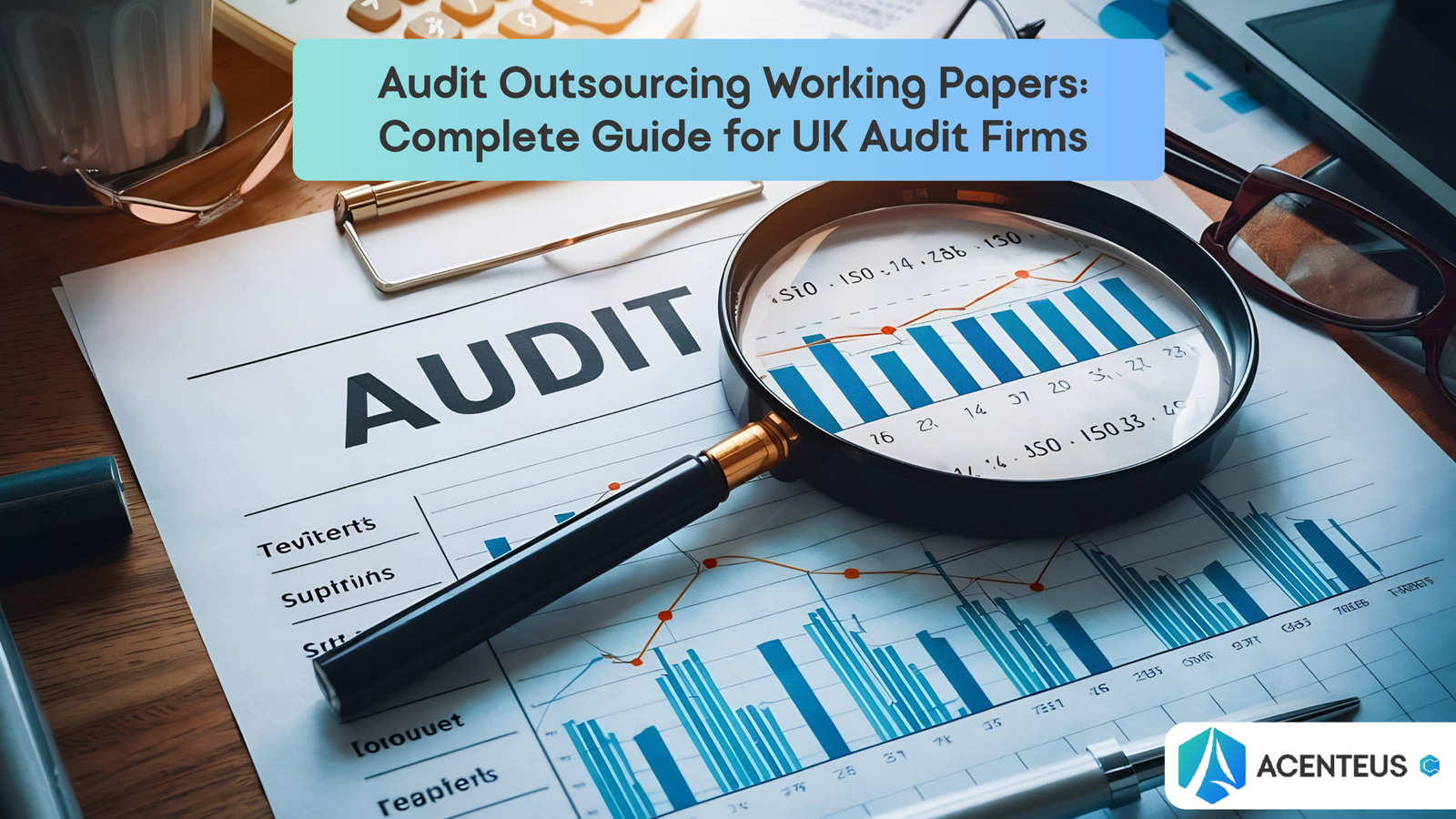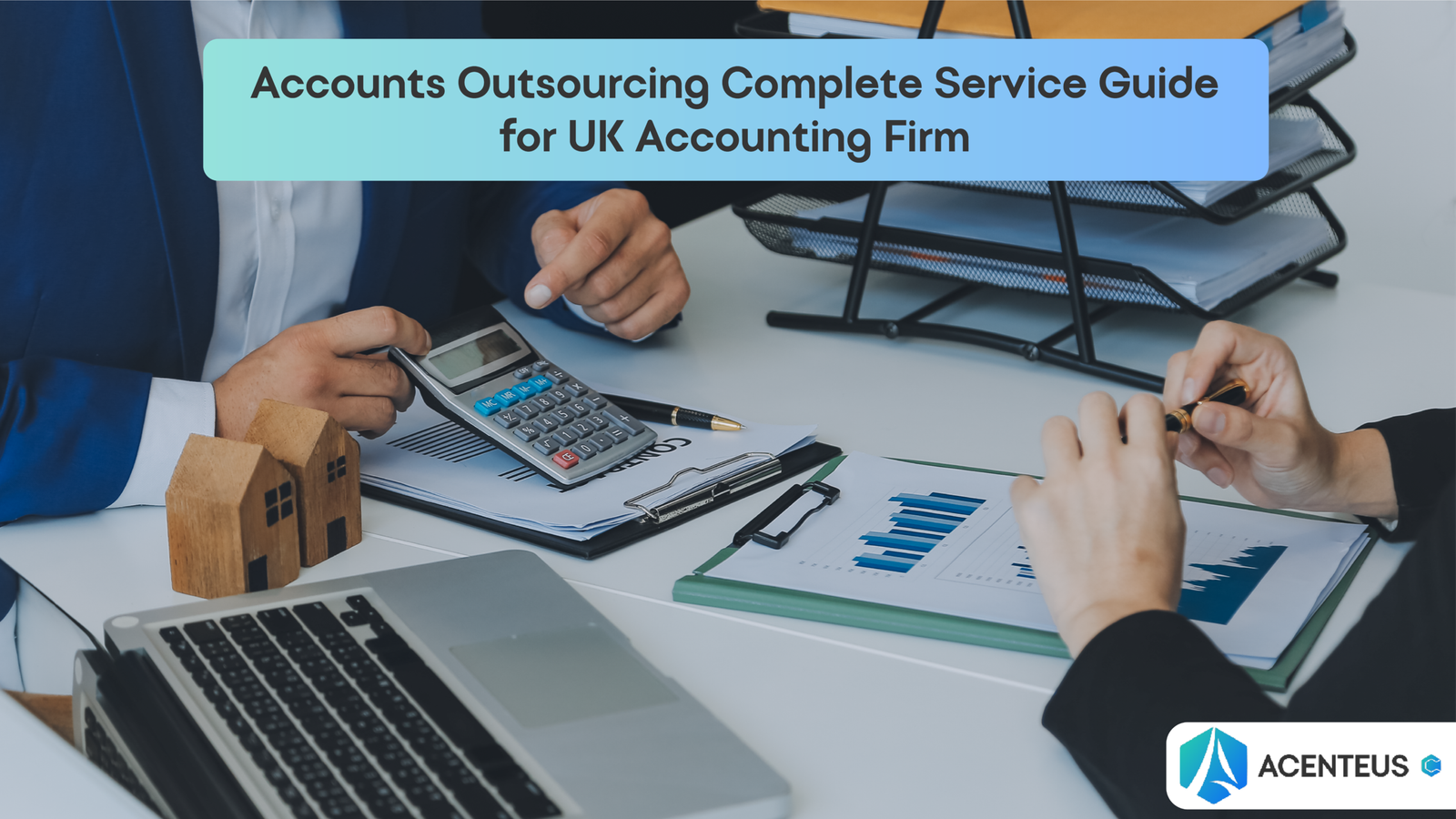Introduction: Why Financial Efficiency Matters
In the highly competitive UK accounting sector, firms are under intense pressure to deliver timely financial insights, adapt to evolving regulations, and provide strategic advice, all while managing rising overheads for staff, software licences, and compliance. Initiatives such as Making Tax Digital (MTD) have increased the workload for VAT reporting and record‑keeping, and clients expect near real‑time analysis of their financial performance. Consequently, in‑house finance teams struggle to meet these demands without escalating costs.
Outsourcing management accounts emerges as a powerful solution for accounting practices of all sizes. By partnering with a specialist provider, you can delegate routine yet essential tasks — preparation of profit and loss statements, balance sheet compilation, cash flow forecasting, and KPI analysis — to external experts. Your in‑house team is then freed to concentrate on higher‑value services: client advisory, business development, and proactive planning.
This guide delves into five cost‑saving strategies that UK firms can adopt when outsourcing management accounts. You will discover how fixed‑fee pricing can deliver budgeting certainty; how eliminating recruitment and training overheads reduces fixed payroll costs, how leveraging best‑in‑class technology accelerates reporting; why bundling services yields discounts; and how flexible scaling enables seamless capacity adjustments during peak periods. Additionally, we outline critical security and compliance considerations to safeguard client data under GDPR and ISO 27001 standards. Finally, we present practical tips for selecting the right UK‑based outsourcing partner and conclude with an actionable roadmap for cutting costs without compromising quality.
By implementing these strategies, your firm can achieve substantial savings — typically between 20% and 40% of finance function costs, while enhancing report accuracy, turnaround times, and strategic focus.
Understanding Management Accounts and Their Importance
Management accounts are periodic internal financial reports, usually prepared monthly or quarterly, designed to provide business leaders with up‑to‑date insights into operational performance. Unlike statutory accounts, which are annual filings adhering to strict HMRC and Companies House requirements, management accounts are tailored for internal decision‑making and strategic planning.
Key elements of management accounts include:
- Profit and Loss (P&L) Statements: Detail revenues, cost of sales, operating expenses, and net profit for a defined period.
- Balance Sheets: Summarise assets, liabilities, and equity at a specific date, offering a snapshot of financial position.
- Cash Flow Reports: Project cash inflows and outflows, highlighting working capital requirements and liquidity projections.
- Key Performance Indicators (KPIs) and Variance Analysis: Customised metrics such as gross margin percentage, debtor days, inventory turnover, and budget variances to track performance against targets.
These components empower management teams to:
- Monitor Financial Health: Identify trends, cost overruns, or underperformance in near real‑time.
- Manage Cash Flow: Anticipate funding requirements or investment opportunities.
- Inform Strategic Decisions: Base pricing, expansion, and resource allocation on accurate data.
- Enhance Client Engagement: Offer clients proactive advice and demonstrate added value.
For accounting firms, offering management accounting and outsourced management accounts positions your practice as a strategic partner rather than a compliance service provider. By delivering regular, insightful reports, you can deepen client relationships, identify upsell opportunities such as budgeting workshops or dashboard customisation and differentiate your service in a crowded market.
However, producing comprehensive management accounts in‑house demands significant resources: Experienced staff, robust processes, and reliable software tools. Recruiting, training, and retaining skilled management accountants incurs ongoing costs, while manual report production increases the risk of errors and delays. Outsourcing the function to a specialist management accounting outsourcing provider offers a compelling alternative by combining expertise, efficiency, and scalability.
How Outsourcing Management Accounts Delivers Strategic Value
Outsourcing management accounting goes beyond simple cost reduction; it enhances service quality, accelerates delivery, and strengthens compliance. Consider these strategic benefits:
Expert Talent Pool on Demand
Outsourcing partners employ qualified accountants, financial analysts, and compliance specialists with up‑to‑date knowledge of UK GAAP, FRS 102, and MTD regulations. This ensures your reports are prepared by experts, reducing the learning curve and cost of continuous professional development (CPD). In effect, you tap into a specialist resource pool without the overhead of recruitment, salaries, or benefits.
Accelerated Turnaround Times
Specialist providers use streamlined workflows and automation tools to expedite report generation. Automated data extraction from accounting platforms (Xero, QuickBooks, Sage) and built‑in validation checks deliver error‑free reports within 5–7 business days. Faster turnaround enables your firm to provide clients with timely financial insights, improving decision‑making and strengthening your reputation for reliability.
Robust Compliance and Quality Assurance
Leading outsourcing firms integrate compliance controls into every step of the process. Multi‑stage reviews, software‑based reconciliation, and audit‑ready documentation ensure that management accounts meet regulatory standards and can withstand external scrutiny. This reduces risk for your firm and assures clients that their financial reporting is fully compliant with GDPR, HMRC guidelines, and industry best practices.
Variable Cost Model for Enhanced Flexibility
Outsourcing converts fixed costs — permanent staff salaries, pension contributions, software licences — into variable costs linked to service usage. Whether you choose a fixed‑fee package, a per‑report fee, or a pay‑as‑you‑go model, you pay only for the services consumed. This scalability aligns costs with business activity levels and client workloads, delivering predictable budgeting and avoiding idle capacity.
Focus on Advisory and Growth
By delegating routine accounting tasks, your in‑house team gains bandwidth to focus on high‑margin advisory services: strategic planning, management consultancy, mergers and acquisitions support, and performance improvement projects. This shift enhances client value, drives revenue growth, and elevates your firm’s market position.
Five Cost‑Saving Strategies Through Outsourced Management Accounts
Below are five targeted strategies that UK firms can adopt within their management accounts outsourcing arrangements to maximise savings and efficiency.
Fixed‑Fee Pricing Models: Budget Certainty and Simplification
Adopt a fixed‑fee monthly retainer for management accounts and related services. This predictable cost structure eliminates surprise charges for additional hours or ad‑hoc requests. When negotiating a fixed‑fee contract, ensure it covers:
- Number of management account cycles per period.
- Scope of reports (P&L, Balance Sheet, Cash Flow, KPIs, variance analysis).
- Data integration and software maintenance.
- Scheduled review meetings and ad‑hoc support hours.
A well‑structured fixed‑fee agreement simplifies budgeting and often results in cost savings, as the outsourcing fee typically undercuts the combined operating expense of an in‑house team (salaries, National Insurance, pension, training, software licences).
Eliminating Recruitment and Training Overheads: Immediate Cost Impact
In‑house management accounting requires recruiting qualified staff, arranging background checks, onboarding, and funding ongoing training to maintain CPD compliance. Outsourcing transfers these obligations to the provider, who already maintains:
- A fully trained workforce with relevant certifications (ACCA, CIMA, ICAEW).
- Regular CPD programmes to keep teams updated on regulatory changes.
- Standardised recruitment and HR processes to ensure continuity and resource availability.
Transferring recruitment and training responsibilities to your outsourcing partner immediately reduces your HR, payroll, and training budgets, delivering a clear reduction in fixed overheads.
Leveraging Best‑in‑Class Technology: Access Without Capital Expenditure
Top outsourcing companies invest in premium accounting and analytics software — including Xero, Sage, QuickBooks, Microsoft Power BI, and Tableau. By outsourcing, you inherit access to these tools:
- Automated Data Feeds: Direct integration with your accounting platform, eliminating manual data entry.
- Interactive Dashboards: Real‑time visualisations of KPIs and financial metrics, accessible via secure portals.
- Workflow Automation: Automated report generation, approvals, and distribution, reducing turnaround times.
This approach negates the need for your firm to purchase expensive licences or invest in IT infrastructure. The outsourcing partner covers all upgrade, maintenance, and training costs associated with these platforms.
Bundled Service Discounts: Economies of Scale
Many providers offer volume discounts when you bundle management accounts with other finance function services, such as:
- Bookkeeping and bank reconciliation.
- Payroll processing and pension administration.
- VAT return preparation and submission.
- Annual statutory accounts and audit support.
Consolidating multiple services with a single provider reduces administrative complexity and duplication of effort. Providers can optimise workflows across tasks, passing on economies of scale as discounted bundled pricing, which can represent savings of up to 15% compared to standalone services.
Flexible Scaling During Peak Periods: Agile Resourcing
Seasonal peaks, tax deadlines, year‑end reporting, and client onboarding surges often strain in‑house resources. With outsourcing, you can scale capacity on demand:
- Increase reporting cycles temporarily during busy periods without hiring temporary staff.
- Add specialist support for complex assignments such as consolidation or group reporting.
- Scale back during quieter months to control costs.
This elastic model transforms headcount management into a pay-per‑use service, eliminating the need for costly short‑term hires or redundancies and ensuring you always meet client deadlines.
Security and Compliance: Ensuring Data Protection
When outsourcing any financial function, data security and regulatory compliance are paramount. Reputable UK‑based management accounting outsourcing providers implement stringent safeguards:
- Data Encryption: SSL/TLS encryption for data in transit, and AES-256 encryption for data at rest.
- ISO 27001 Certification: Ongoing, independently audited information security management systems (ISMS).
- GDPR and UK Data Protection Act Compliance: Detailed data processing agreements, privacy impact assessments, and prescribed data retention schedules.
- Access Controls: Role-based permissions, multi-factor authentication, session logging, and regular penetration testing.
- Business Continuity and Disaster Recovery: Regular backups, geographically dispersed data centres, and tested recovery procedures.
Before engaging a provider, request evidence of their security credentials, compliance certifications, and audit reports. A transparent demonstration of ISO 27001 and GDPR adherence will reassure you and your clients that sensitive financial data is handled to the highest standards.
Selecting the Right UK-Based Partner
Choosing an outsourcing partner requires a thorough evaluation to ensure alignment with your firm’s values, technical environment, and strategic goals. Follow this structured approach:
- Define Your Scope: Clearly outline the services you wish to outsource, management accounts, reconciliations, variance analysis, dashboard delivery, and ad‑hoc reporting.
- Evaluate Domain Expertise: Look for a provider with demonstrable experience in UK GAAP (FRS 102), MTD compliance, VAT reporting, and accountant‑focused advisory services.
- Assess Technology Compatibility: Confirm the provider integrates seamlessly with your existing software stack (Xero, QuickBooks, Sage, Power BI).
- Review Pricing Models: Compare fixed‑fee versus transactional pricing, ensuring transparency around inclusions, exclusions, and additional fees for out-of-scope requests.
- Examine Security and Compliance: Verify ISO 27001 certification, GDPR compliance processes, and data centre locations (preferably UK‑based).
- Check References and Case Studies: Request client testimonials or case studies from firms similar in size and complexity to yours.
- Test Service Levels: Pilot a small engagement or trial period to assess turnaround times, report quality, and communication responsiveness.
- Establish Communication Protocols: Ensure dedicated account management, regular review meetings, and clear escalation paths for urgent issues.
By scoring providers against these criteria, you can objectively identify the partner that best meets your operational requirements and supports your growth ambitions.
Conclusion: Cut Costs, Not Corners
Outsourcing your management accounts in the UK presents a strategic opportunity to transform your finance function into a cost‑efficient, high‑value engine. By leveraging specialist expertise, advanced technology, and flexible pricing models, your firm can achieve:
- 20–40% cost savings compared to traditional in‑house processing.
- Enhanced report accuracy and compliance with UK GAAP, MTD, and GDPR.
- Accelerated turnaround times, delivering insights within 5–7 business days.
- Scalable resources during seasonal peaks without recruitment overheads.
- Focus on advisory services, driving client satisfaction and revenue growth.
These combined benefits allow your practice to concentrate on strategic initiatives, differentiate your service offering, and build stronger client partnerships. The right outsourcing partnership becomes an extension of your team, empowering you to maintain high standards of financial reporting while controlling costs.
Ready to unlock new efficiencies and maximise profitability?
Stop searching for a UK-based management accounts outsourcing partner, choose Acenteus CCA and take the first step towards a leaner, more agile finance function.
Partner with Acenteus CCA today and transform your finance operations for lasting success.
Frequently Asked Questions
Management accounts are internal, periodic reports (monthly or quarterly) used for management decision‑making and strategic planning. Statutory accounts are annual financial statements prepared under UK GAAP (FRS 102) for HMRC and Companies House filings.
Small and mid‑sized accounting firms, fast‑growing practices, and firms offering advisory or virtual CFO services benefit significantly, gaining scalable support without long‑term hiring commitments.
Businesses typically achieve 20–40% savings on finance function costs, as outsourcing fees often undercut in‑house expenses for salaries, NI contributions, pensions, training, and software licences.
Yes. Accredited UK providers prepare reports under UK GAAP (FRS 102), MTD guidelines, and GDPR, supported by multi‑tiered quality control processes.
Absolutely. Most partners integrate seamlessly with Xero, QuickBooks, Sage, and similar platforms via secure APIs or portals.
Standard turnaround is 5–7 business days after receipt of clean data; expedited options may be available for additional fees.
Top providers implement end‑to‑end encryption, ISO 27001‑certified data centres, role‑based access controls, multi‑factor authentication, and GDPR‑compliant processes.
Evaluate based on domain expertise, pricing transparency, technology compatibility, security credentials, and client references. A trial engagement can help assess service quality before committing.
Yes. Outsourcing converts fixed headcount into a flexible service model; providers can quickly adjust resources to meet changing demand.
Beyond management accounts, many partners offer budgeting and forecasting workshops, KPI dashboard customisation, cash flow optimisation advice, and support for mergers, acquisitions, and fundraising activities.







